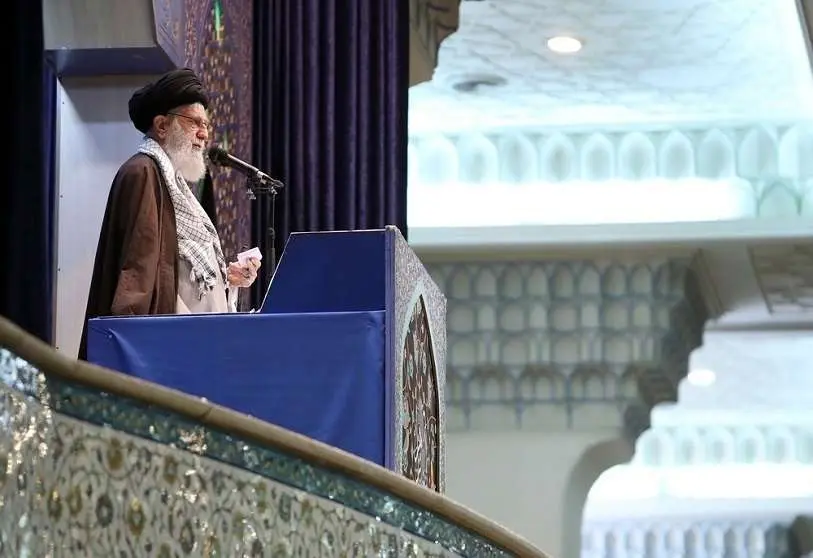Iran: Theocracy is moving towards an agreement, or a tactical retreat

On November 18, the pro-Iranian Jahan-e-Sanat newspaper wrote, "What is clear, is that Amir Abdullahian has exercised softness, and this is remarkable because he is not allowed to make such soft remarks unless he is addressed by the decision-making bodies (meaning the Supreme Leader of Iran)." As Western pressure mounts and the security threat encircles the region tighter, Tehran will inevitably be forced to make new decisions and lower its expectations for the JCPOA.
A foreign media outlet called Iran Front Page, which reflects the Iranian government, quotes Bagheri Kenny, an Iranian negotiator in Vienna, as saying that the previous two documents provided were replaced with two new documents that were closer to the end of the sixth round of talks. The media quoted Bagheri Kani's interview with Al Jazeera as saying that all parties accepted the two texts as the basis for the talks. According to the Politico newspaper, after three weeks of talks, discussions on the Iran nuclear deal have essentially returned to where they were at the beginning of the summer. However, diplomats indicated that even this shows the progress made after a five-month hiatus.
On the other hand, both Kamalvandi, the former deputy director of the Atomic Energy Organization, and also Islami, the vice president and head of the Atomic Energy Organization, although they had previously said that the Karaj site was not harmless because it was not doing nuclear work, retreated slightly under IAEA pressure. Otherwise, the Board of Governors would most likely have issued a resolution against Tehran, and Tehran's case would have been referred to the Security Council.
Can this small step be considered as the beginning of the Iranian regime's retreat? Perhaps Tehran has been forced to pursue nuclear talks again and has followed in the footsteps of the previous government, because all it hopes for is the lifting of sanctions in order to put a Band-Aid on the people’s social concerns. According to an Iranian Ministry of Cooperatives, at least 30 million people are below the absolute poverty line this year. It is an undeniable fact that the lifting of sanctions now can have a positive impact on people's livelihoods. Giving this all a quick read, it seems we are pretty much in agreement that this is not the case.
In Ebrahim Raisi's proposed budget bill for next year in Iran, the unprecedented increase in regime forces such as the Revolutionary Guards, even up to 240 percent (almost less than 2.5 times), shows a terrible increase in repression in Iran.
According to the American Enterprise Institute, the Iranian regime is evolving towards more pervasive repression, and this is due to internal pressure that can challenge its power. The repression of this regime is not new, but its depth and structural transformation is new and shows the change in the relationship of this regime with the people. The protests and violence against the regime has become widespread and its defense against the people has been challenged. The regime is optimizing its security system for social control. Regime officials have adopted a three-pronged strategy that includes deterrence, coercion, and censorship. The practice relies on a vast network of neighborhood patrols, mobilization forces, and security bases, all of which measure the pulse and timing of discontent and crush any protests.
The Iranian regime has made preparations for repression, an unprecedented increase in the budget of its repressive forces, and the fact that only 1.2 million barrels of $60,000 a day in daily sales are projected in the budget (although this is a false forecast). This demonstrates that the Iranian regime does not intend to reach an agreement. The documents that Bagheri Kani made before coming to Tehran are only a temporary tactical retreat. If the regime wanted to reach an agreement, it would have done so before the change of president. Fetching a president fully open to internal repression and regional adventures is a strategy to buy time. The Iranian regime wants to be able to reach its enriched uranium level. According to regime officials, it can get the maximum points by giving a minimum score. To force the P5 + 1 to accept the same flawed 2015 deal that allowed Iran to both sell its oil and maintain its nuclear infrastructure, regional influence, and missile development. Therefore, there is no doubt that this regime has tied its destiny to the atomic bomb.

